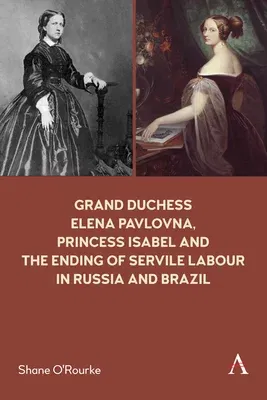Grand Duchess Elena Pavlovna and Princess Isabel were two of the most
remarkable women of the nineteenth century; both are largely unknown in
the English-speaking world. Elena Pavlovna was a German princess from
the Kingdom of Wurttemburg who was selected to be the wife of Grand Duke
Mikhail, the brother of Emperors Alexander I and Nicholas I. Princess
Isabel was the daughter of the Brazilian emperor Dom Pedro II and heir
to the throne. Both women were major players in the politics of
emancipation in Russia in 1861 and in Brazil in 1888, respectively. Like
many women, their political activities have been marginalized or
completely written out of the historical record. This book chronicles
the political lives of these two women, culminating in two of the most
momentous emancipations of the nineteenth century. It does so in a way
that sets the two women in the context of their societies. These
societies were servile societies in the full sense of this phrase.
Russia was the largest servile society in the world with over 40 million
serfs at the time of emancipation while Brazil was the first slave
society in the Americas and the last to free its slaves.
The book emphasizes that the freeing of serfs in Russia and slaves in
Brazil was part of the great wave of emancipations that began with the
French Revolution. When that wave finally receded servile labor had been
swept away from most countries in the world, including France (1789),
Haiti (1793), Prussia (1807), the British Empire (1833), the Austrian
Empire (1848), the Russian Empire (1861), the United States (1865), and
ending with the freeing of slaves in Brazil in 1888. Too often,
emancipation is looked at purely from a national view or one that is
confined to the English-speaking world. Yet even from this truncated
list it is clear that emancipation was a truly transnational phenomenon.
The book adopts an explicitly comparative approach. By detailing
emancipation in the Russian and Brazilian empires, this book offers a
broader understanding of that process, showing what they had in common
as well as what differentiated them. Both empires were monarchies in
which the emperors ruled as well as reigned, both excluded women from
any political role and both were servile societies. Without denying the
importance of the struggles of the oppressed themselves for freedom or
the impact of economic changes, this book prioritizes high politics as
an essential component of Monarchy, gender roles, and emancipation
converged in the persons of Grand Duchess Elena Pavlovna and Princess
Isabel in ways that had a decisive impact on the course of emancipation
and the form that it took.

